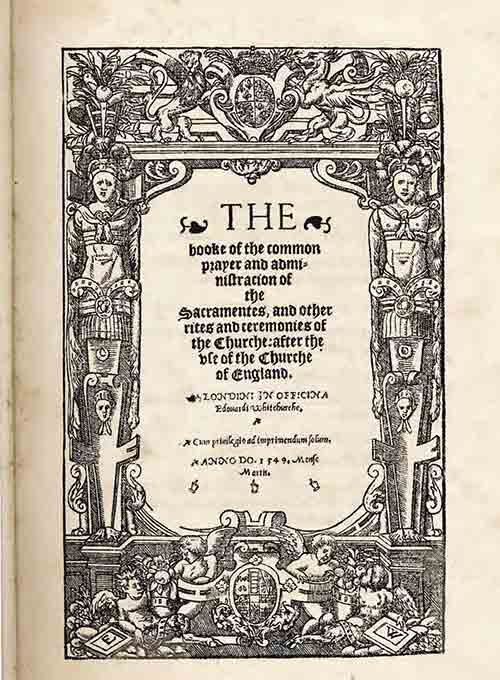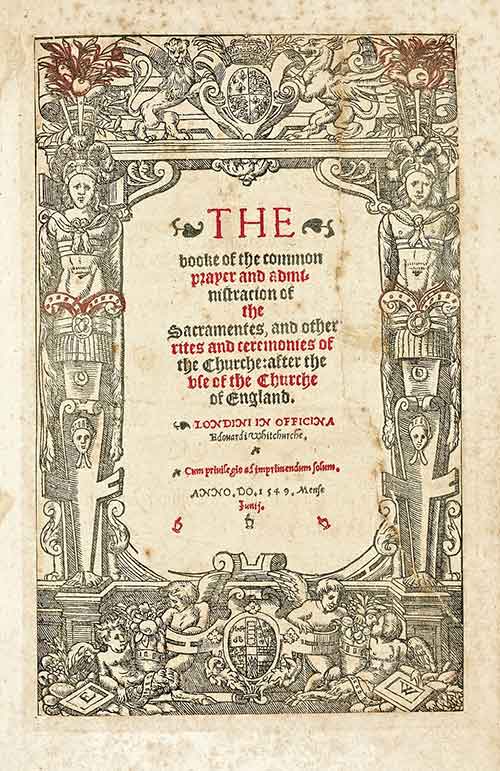
I recently read again Cranmer’s Concerning the Service of the Church at the start of the Book of Common Prayer. This was the Preface, written by Cranmer, of the BCP in 1549. Three principles leaped out at me as challenging our contemporary church (and a fourth which I will leave to the end):
- in our church we put far more energy into choosing each element that will go into a service than putting into that actual element when we use it in the service. Often, it takes far more energy to work out what our church’s rules are and what we have vowed and signed we will do than to actually do that once we have found out what we agreed to (“the number and hardness of the Rules called the Pie, and the manifold changings of the service…many times there was more business to find out what should be read, than to read it when it was found out…”)
- we use the term “common prayer”, but the term “Anglican Church of Or” is not a misnomer – the differences between services at different times in a parish (or in some parishes at the same time but in different locations) let alone between one parish and its neighbouring one is often so great that an external observer could be forgiven for not recognising they were part of one family (“there hath been great diversity in saying and singing in Churches within this Realm; some following Salisbury Use, some Hereford Use, and some the Use of Bangor, some of York, some of Lincoln…)
- Rules and agreements, where we have them, should be easy to locate in one place and simple to understand (“Rules are here set forth; which, as they are few in number, so they are plain and easy to be understood“):
There was never any thing by the wit of man so well devised, or so sure established, which in continuance of time hath not been corrupted: As, among other things, it may plainly appear by the Common Prayers in the Church, commonly called Divine Service. The first original and ground whereof if a man would search out by the ancient Fathers, he shall find, that the same was not ordained but of a good purpose, and for a great advancement of godliness. For they so ordered the matter, that all the whole Bible (or the greatest part thereof) should be read over every year; intending thereby, that the Clergy, and especially such as were Ministers in the congregation, should (by often reading, and meditation in God’s word) be stirred up to godliness themselves and be more able to exhort others by wholesome Doctrine, and to confute them that were adversaries to the Truth; and further, that the people (by daily hearing of holy Scripture read in the Church) might continually profit more and more in the knowledge of God, and be the more inflamed with the love of his true Religion…
But these many years passed, this godly and decent order of the ancient Fathers hath been so altered, broken, and neglected… the number and hardness of the Rules called the Pie, and the manifold changings of the service, was the cause, that to turn the book only was so hard and intricate a matter, that many times there was more business to find out what should be read, than to read it when it was found out…
Yet, because there is no remedy, but that of necessity there must be some Rules; therefore certain Rules are here set forth; which, as they are few in number, so they are plain and easy to be understood…
And whereas heretofore there hath been great diversity in saying and singing in Churches within this Realm; some following Salisbury Use, some Hereford Use, and some the Use of Bangor, some of York, some of Lincoln; now from henceforth all the whole Realm shall have but one Use…
And all Priests and Deacons are to say daily the Morning and Evening Prayer either privately or openly, not being let by sickness, or some other urgent cause.
And the Curate that ministereth in every Parish-church or Chapel, being at home, and not being otherwise reasonably hindered, shall say the same in the Parish-church or Chapel where he ministereth, and shall cause a bell to be tolled thereunto a convenient time before he begin, that the people may come to hear God’s Word, and to pray with him.
And so I conclude with the promised fourth principle: Christian leaders should exemplify the Christian discipline of daily prayer, the prayer of the church (“all Priests and Deacons are to say daily the Morning and Evening Prayer either privately or openly, not being let by sickness, or some other urgent cause“).
.



